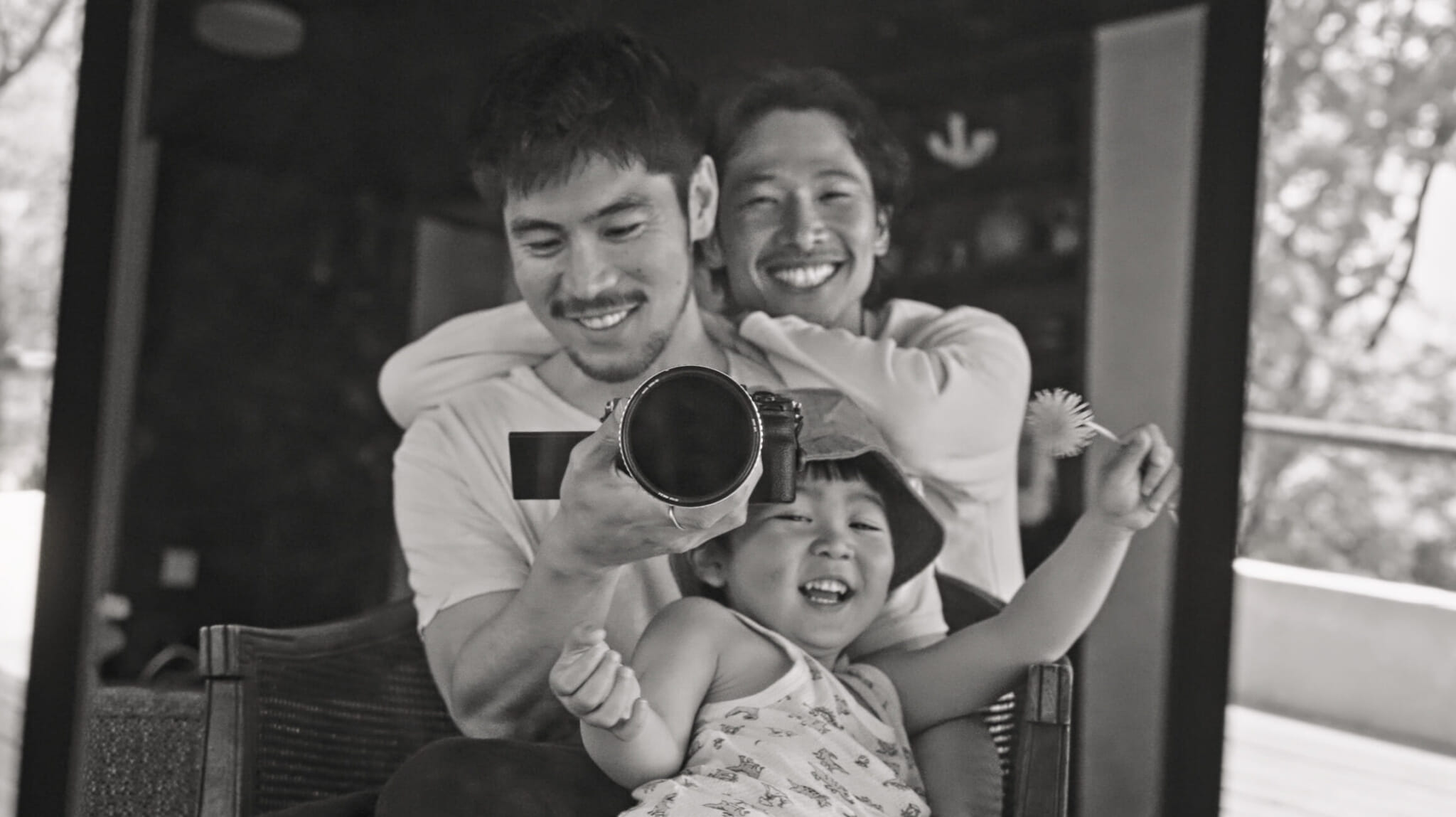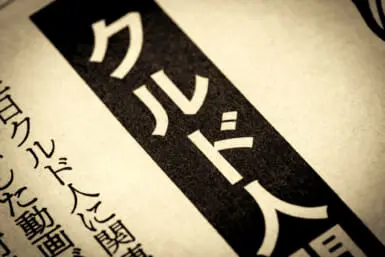This article appeared in Tokyo Weekender Vol. 3.
To read the entire issue, click here.
On a hot, humid summer day in Tokyo, along the waterfront where the Sumida River runs into Tokyo Bay, I’m greeted by three radiant smiling faces. They belong to a trio of absurdly picturesque social media darlings: the jovial Shigeki Matsumoto, known online as Shiba; his husband, the cool and collected Koji Suzuki; and their adorable 3-year-old son Isshin, who is sadly suffering from a summer cold, I’m told. Despite his cold, Isshin’s grin is just as infectious in person as on their social media, where thousands flock to catch a glimpse into the family’s idyllic lives in rural Japan. There’s another bonus of meeting them in person: Isshin gifts you with honey locally sourced near their home.
Matsumoto and Suzuki began dating over 15 years ago, and for nearly as long, they have allowed their relationship to unfold online. On Instagram and YouTube, they post videos and photos, sharing their family’s domestic rituals, such as cooking, working on craft projects and exploring the countryside. They even make banal chores like taking out the trash look like a scene from a Nancy Meyers movie.
It’s easy to see why the family’s videos have resonated so deeply with people. Matsumoto and Suzuki’s love for one another, and their joint love for Isshin, is deep and palpable, even through a computer or phone screen. For many LGBTQ+ individuals, in Japan and around the world, their relationship stands as a guiding light. An openly gay couple, creating a family, sharing their lives and love for traditional Japanese culture with the world: This kind of queer representation — especially in Japan — is all too rare.
Under the heat of the sun, we sat down by the waterfront, Isshin occupied by playing with a brochure, to talk about their journey.
Rocky Beginnings
Despite their current, fairytale-esque love story, Matsumoto and Suzuki’s relationship had quite the turbulent start. “I met him through his ex-boyfriend,” Suzuki explains, and Matsumoto quickly adds, “Who was cheating on me with him.” Drama indeed.
The three had been hanging out together for a while, but during this time, Suzuki was unaware of Matsumoto’s ongoing relationship, and vice versa. “At that time, I didn’t know they were dating,” Suzuki states. “I was told they were broken up.” Which is exactly how they ended up after Matsumoto discovered his ex’s deception, documented on a shared camera.
“Suddenly, I received this really strongly worded message,” Suzuki states — Matsumoto had fired off an expletive-filled email, blaming him for his role in the affair. Suzuki didn’t want their friendship to end this way: “I still felt we could remain friends.”
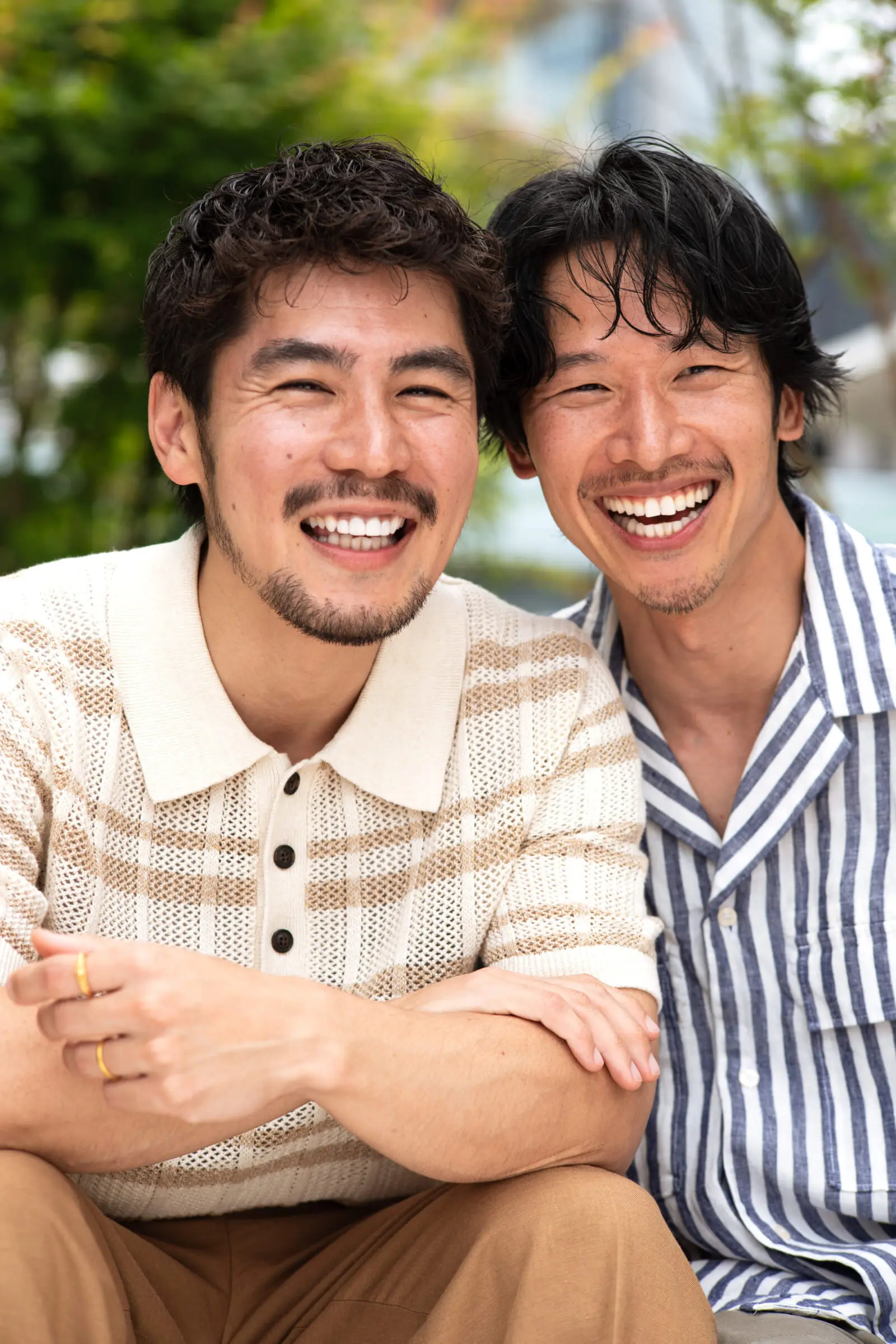
Matsumoto and Suzuki. Photo by Laura Pollacco
Suzuki responded and explained himself, opening the door for reconciliation. At first, Matsumoto wanted nothing to do with the man who was, he felt, to blame for his broken heart … but, at the time, Matsumoto was training to earn his pilot license, and Suzuki just happened to be a licensed pilot. “I thought, ‘Maybe we should keep in touch,’” he says with a laugh. “It evolved from there.”
Keeping in touch turned to friendship; the pair spent time together and soon discovered they had a mutual love of traveling and nature. One fateful bike ride across Amami Island would confirm something both of them had been slowly realizing — they had feelings for one another.
“At that time, we had very little,” Matsumoto says. “We ate fish we caught and slept in a tent, but that was truly enjoyable for me. I thought that maybe, with him, even if I lose all my money and have no possessions, it’s not a problem. My life would still be enjoyable because Koji is in it. I had never felt this way before.”
The Adventure of a Lifetime
Matsumoto and Suzuki both work in visual art. Embracing yet another common interest — videography — they began making short videos of their travels and uploading them to a shared YouTube channel early on in their relationship. Their first upload, from 15 years ago, is a low-quality video showing the two trying out a hot spring in Hokkaido. They’ve come on leaps and bounds since then.
Initially, though, Matsumoto was unsure about putting their personal lives online. “I was not a person who could easily express myself to others,” Matsumoto explains. “I made videos, photos and paintings, but only for myself.”
In 2016, an encounter with a well-known photographer made him start to think differently. “We shot some images with him at an LGBTQ+ event,” Matsumoto says. “After, he visited us at home and saw a huge painting hanging on the wall that I had done for Koji’s birthday, one that expresses my dream for my future with Koji. He got emotional seeing it and encouraged me to express our love more publicly.”
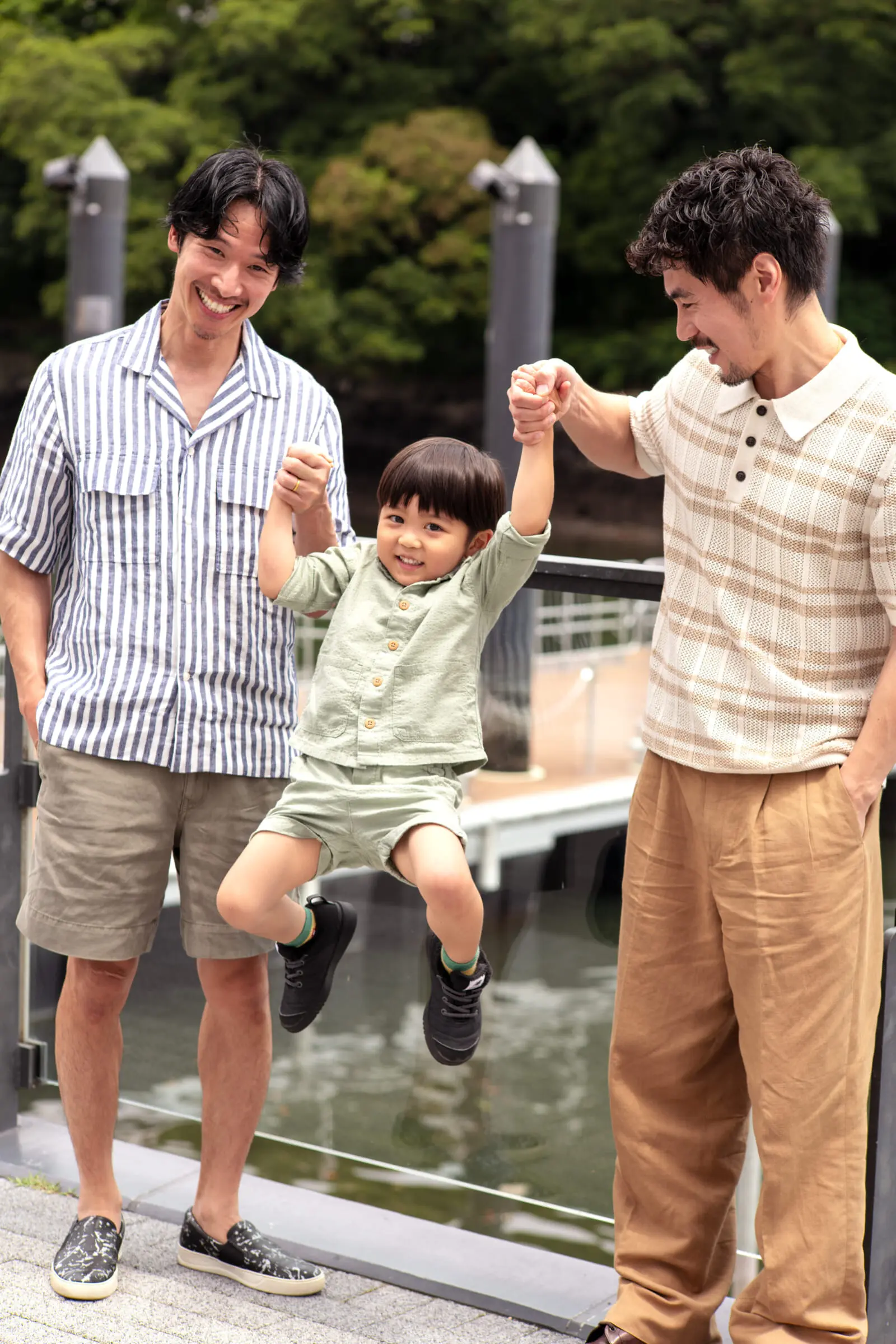
Suzuki, Isshin and Matsumoto. Photo by Laura Pollacco
A year later, both Matsumoto and Suzuki were releasing videos covering their travels together. Their subject matter gradually began to change, from clips of them enjoying outdoor activities in Japan, as well as Italy and the States, into the two simply documenting their lives and love for one another.
“At first, I didn’t know if he could do this,” Suzuki says of his husband’s video aspirations, “but he is so good at capturing what he dreams on camera, capturing the emotion.”
“It’s like therapy,” Matsumoto adds. “I was going to keep it to myself, but when I went public, I found that people were feeling healed by my work. I was so surprised to learn this — that my experience can help someone.”
In 2018, the pair were legally married in the United States, where Suzuki and his family have green cards. They also celebrated their love through a small, private ceremony in Japan that same year. Matsumoto recalls being surprised when his partner proposed the idea. “We were hiking the Kumano Trail in Wakayama, and Koji just told me, ‘We’re going to have a ceremony tomorrow.’” Suzuki had planned the event ahead of time to surprise his partner, believing it fitting to do it in the middle of a hike. “For me, marriage should not be seen as the peak of a relationship,” he explains. “It’s just a part of an ongoing journey.”
The pair rented formal kimono and took part in a traditional Shinto wedding at Kumano Hongu Taisha shrine, overseen by shrine maidens and a priest. “They accepted us without any concern about our gender, and we were not asked any questions on the day of the wedding,” Matsumoto says.
The couple documented the ceremony and posted the resulting video on their YouTube channel. To date, over 2 million people have watched their traditional nuptials.
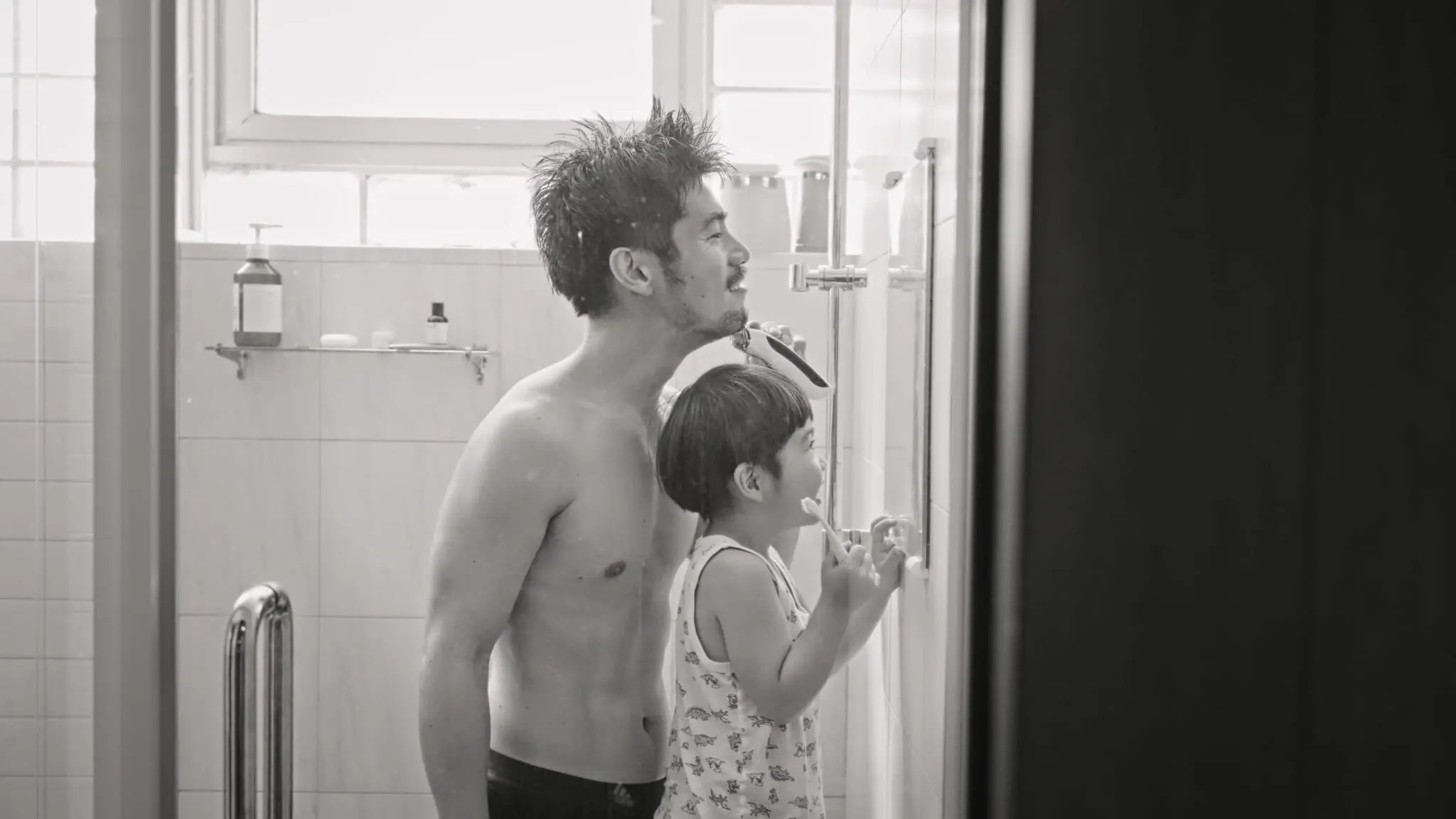
Photo by Shiba and Koji
Love Always Has Room for More
In 2020, the couple shared another huge milestone: the arrival of their son, Isshin. Followers of the couple have watched Isshin grow up with his fathers — happy, healthy, enjoying life. Reflecting their devotion to their son, both changed their Instagram handles to include the word “dads.”
Neither Matsumoto nor Suzuki wants to make their relationship a political issue, nor do they consider themselves spokespeople for the LGBTQ+ community in Japan or at large. “We are not activists or politicians,” says Matsumoto. “We are concentrating on raising a child and how to engage with people as artists. We just share our lives as human beings.”
Still, being in the public eye as a gay couple with a child in Japan opens up a lot of discourse. Japan is not one of the most progressive countries when it comes to LGBTQ+ issues, not by a long shot. Gay marriage still isn’t legal here, and without having a legally recognized marriage, same-sex or queer couples hoping to raise a family face sometimes overwhelming bureaucratic barriers.
Under Japanese law, single individuals can adopt children, so it’s possible (but still incredibly challenging) for a gay person to adopt a child as a single person. However, joint adoption by same-sex couples is not legally recognized, meaning that same-sex couples face immense hurdles in securing parental rights for both partners. Surrogacy, meanwhile, is largely unregulated, and extremely difficult for couples to pursue within the country. And even if a child is born via surrogacy abroad, Japanese law may not automatically recognize both partners as legal parents.
Matsumoto says he’s often contacted by people seeking advice, but he can’t keep up with the volume of messages. “There are so many LGBTQ+ individuals who ask me questions about my life,” he says. “Initially, I responded to each of them, but everyone has different circumstances, and I can’t always help.”
For now, he and Suzuki want to keep parts of their life private, with good reason. “We haven’t explained the process of how we had Isshin to the public,” Matsumoto explains. “We are thinking about when and how, but we want to let him decide when he is ready. I have to make him the priority — for him to know and understand whether he wants to share or not.”
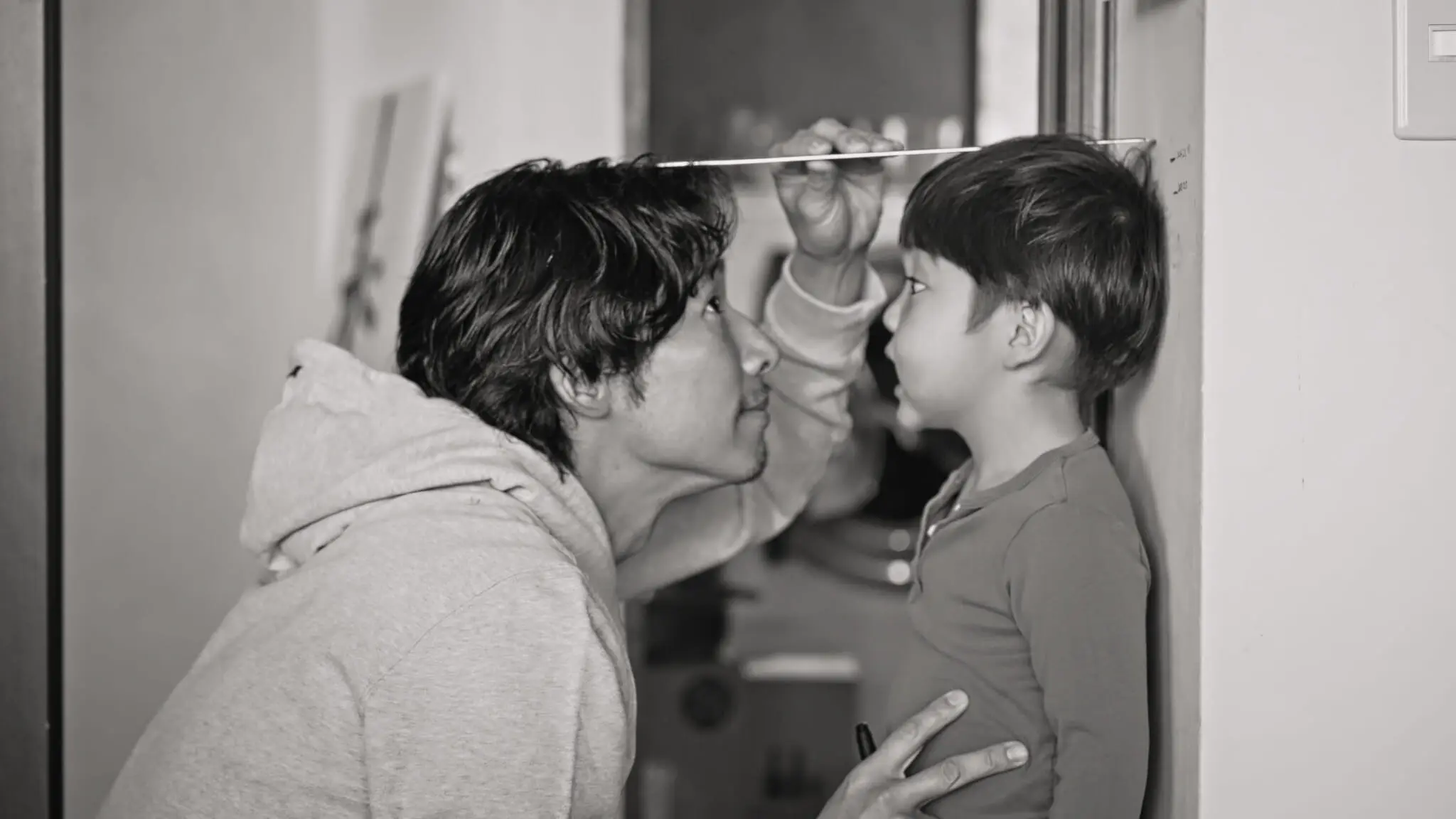
Photo by Shiba and Koji
As a gay couple existing publicly, Matsumoto and Suzuki also have to deal with their fair share of hateful comments, though they’re far outweighed by messages offering support and gratitude. A recent post apparently gathered over 1,000 negative comments from conservatives, which unnerved them enough to make them reconsider their online presence. “I was shocked. I was really nervous, and I took a break from posting, worrying I was putting my family in danger,” says Matsumoto. “Over time, though, I have learned to deal with it.”
His solution: ignore. “You can’t engage with them. I ignore them and choose to focus on the positive comments and treat people with kindness. Maybe in 10 years’ time, they will have their own family, they might find happiness and they will forget all about you.”
Living for a Dream
Not long before Isshin joined the family, the couple decided to relocate to the countryside and began renovating a house, secluded in nature. In their videos, they share their rural, simplistic life. This is a large part of their allure: their authentic joy in the small, ordinary moments they share as a family. They’re often out in nature exploring, making and eating traditional Japanese cuisine — there is one adorable video of them enjoying some very sticky onigiri I implore you to watch — or enjoying craft time.
They also aim to connect to traditional Japanese culture. “I have always felt relaxed surrounded by nature, so that’s why we moved to a remote location,” says Matsumoto. “Our ancestors were really connected to nature through Buddhism and Shintoism, cohabiting with nature. But I grew up in modern, urbanized Japan. I wanted to feel connected to the way my ancestors used to live.”
When I ask about the realities they face as a family, the less-than-idyllic moments, he laughs and responds, “We have argued so many times. We have so many videos of us arguing, but we haven’t edited them yet … The reality is that the move, the renovation and having a young child all at once was extremely tough.”
Matsumoto glances over at Suzuki and Isshin, who are a short distance away, looking out over the waterfront and waving at the boats — Suzuki had excused himself a few minutes prior to take Isshin into the shade. “I’ve spent the past three years out in nature thinking about what it is I wanted to express. I’ve realized that my mission is to express the universality of human love, to leave that behind for my children and showcase my gratitude to Koji for giving me a purpose in life.”

